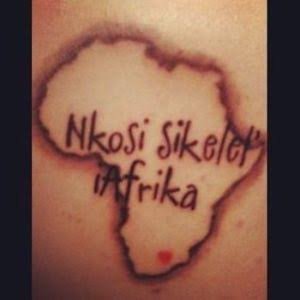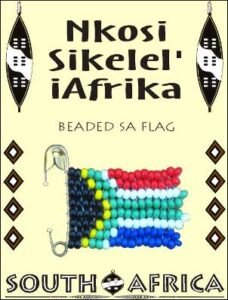
The haunting melody of Nkosi Sikelel’ Afrika once united us in the struggle for justice, echoing the pain and resilience of our black South African brothers against the brutality of apartheid. It was our hymn of defiance, our solemn prayer for a free and dignified Africa. Our heroes—Nelson Mandela, Thabo Mbeki, Steve Biko, Walter Sisulu, Winnie Mandela—dreamed of a nation that would uplift all Africans, a nation where solidarity would be the bedrock of our collective progress.

Yet today, that dream stands tainted. What would these titans of justice think of the shameful stain that President Cyril Ramaphosa and his white accomplices have smeared on South Africa’s image? What will history say about the betrayal of Baba Ahmadou Danpullo, a black African brother who, in the dawn of post-apartheid South Africa, placed his faith—and fortune—into the economy of this once-hopeful nation?
The Fall of a Visionary Investor
From the early 1990s, Cameroonian business magnate Baba Danpullo responded to Mandela’s call for African investment in South Africa. He saw potential in this emerging democracy and built an empire of high-value real estate, amassing assets worth over 300 billion FCFA. Danpullo wasn’t just an investor; he was a bridge between South Africa and Central Africa, fostering economic ties and contributing to South Africa’s post-apartheid prosperity.
In 2017, First National Bank (FNB) extended him a loan of 22 billion FCFA to acquire another property. He placed an initial guarantee of 2 billion FCFA, with a ten-year repayment plan. But when the COVID-19 pandemic hit, the bank demanded immediate repayment, an absurdly unrealistic expectation in a crippled global economy. Trusting the system, Danpullo offered his entire real estate portfolio—worth nearly 300 billion FCFA—as collateral, expecting negotiations, not annihilation.
The Grand Betrayal: Ramaphosa’s Silent Coup
In a ruthless twist, FNB imposed a two-week ultimatum for full repayment. Such a demand was clearly impossible to meet under pandemic-induced economic turmoil. And so, in a matter of months, South African authorities and their banking elite seized Danpullo’s properties, stripping him of the very empire he spent decades building. A man who believed in South Africa was cast aside like an unwanted relic. His assets were handed over to the privileged few—allegedly, Ramaphosa’s friends and white financial overlords who continue to dictate South Africa’s economic destiny.
Dispossessed and betrayed, Danpullo returned to Cameroon and sought justice in his homeland’s courts. Knowing that the Public Investment Corporation (PIC), a major shareholder in FNB, also held stakes in Cameroonian firms like MTN Cameroon and Chococam, he took legal action. The Cameroonian courts responded, freezing assets of these South African companies in an attempt to reclaim what was stolen from him.
A Pan-African Tragedy: Where is Our Unity?
South African companies like MTN Cameroon, which recorded a staggering 123 billion FCFA profit in 2023, reacted swiftly, mobilizing corporate and legal power to fight the asset freeze. Chococam followed suit. These companies have been siphoning billions from Cameroon’s economy for decades, yet when a Cameroonian investor is wronged, the same South Africa that benefited from his investments turns its back on him.
This case exposes a festering wound in Africa’s heart—a continent unable to protect its own. South Africa’s greed and betrayal of Danpullo show that African investors are not safe, even in their own land. While European and Asian investors enjoy legal protections, black Africans remain vulnerable to economic lynching by their own governments.
The Ghost of Winnie Mandela: A Nation’s Betrayal
Winnie Mandela foresaw this decay. She knew that her husband’s concessions to white elites would one day cost South Africa its soul. She warned against the unchecked power of white-controlled banks, the relinquishing of economic sovereignty, and the gradual erosion of black South African power. She would have never stood silent as Baba Danpullo was robbed in broad daylight.
Today, South Africa stands exposed. The Nkosi Sikelel’ Afrika that once rang through the streets as a hymn of liberation now sounds hollow. The Baba Danpullo affair is more than a financial dispute—it is a mirror reflecting our deepest failures.
If African nations continue to betray one another, if black leaders remain complicit in the economic subjugation of their own people, then the dream of a united, self-sufficient Africa will remain just that—a dream. And history will not forgive those who chose greed over justice, who chose silence over solidarity.
South Africa, the world is watching. Will you redeem yourself, or will you let the blood and sweat of your forebears be in vain?



